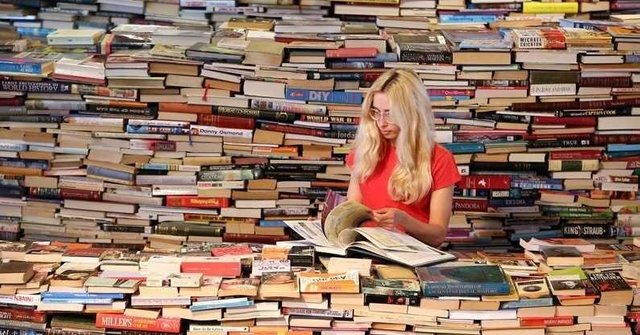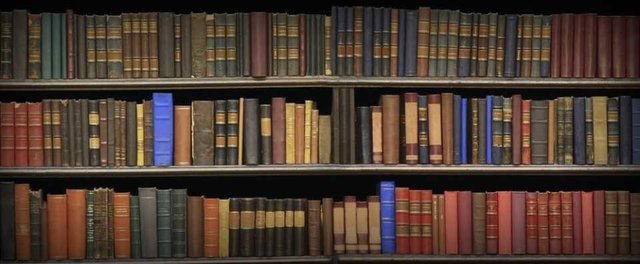Book publishing as a factor of intellectual development of society
To understand the law of the formation and existence of any phenomenon or process, one can only learn the preconditions for its emergence, the twisted course of historical development and present state. It is only after such an analysis that it is possible to forecast the course of the next event with a reservation that in the past we have one way, and in the future leads to various ways.
This article topic is one of many problems. about the intellectual development of people in the past, present and future. Unlike the members of the fauna, including our closest relatives, from which we are separated from a biological pair of chromosomes, people in the course of evolution have since developed their machines thinking that because of their flexibility and adaptation to living conditions,able to free themselves from the complete submission of nature and, in a sense, to subjugate itself, know the secrets and laws of world development and use them for their practical purpose.
A special role in the evolution of human development is played by articulating speech as a means of communication between individual members of the clan and tribe through the oral transmission of knowledge from one person to another. Over time, there is writing, contributing to the preservation of knowledge in formal writing on clay tablets (Sumerians) or on papyrus (Egyptians) for their transmission from generation to generation.
Knowledge of the law of natural phenomena and processes also contributes to the mathematics and costs that influence the development of crafts, making technological tools, the formation of attitudes and significant Science (philosophy, astronomy, physics, architecture, medicine and other branches of knowledge).
Knowledge transfer is done through individual learning, where young people feel the knowledge of their parents and parents, using their experience and skills in practical activities. But already in the third millennium BC, Sumeres have schools where a group of students receive systematic knowledge not only in writing and numeracy, but also in professional activities in the future.
At the famous Library of Alexandria, opened by the Egyptian ruler Ptolemy II in 290 BC, over 500 thousand tablets and scrolls of ancient world scientists, collected by all possible methods at the time, were kept. Unfortunately, only a few works of scientists from the world's richest library survive to this day. Most jobs are lost forever as a result of natural disasters and the ignorance of many rulers.
The destruction of the library begins with the fact that Roman conquerors in Egypt are drawn into internal strife to gain power between Cleopatra and his brothers. Roman Emperor Julius Caesar decided to help Cleopatra and engage in armed struggle with the Egyptians, consequently a fire broke out in 48 BC, which destroyed most of the manuscripts and scrolls that were stored.
Fortunately, some books survived and Alexandria for a long time served as the center of intellectual development of mankind, up to 391 AD, whereas under Roman Emperor Aurelian rule has not yet begun persecution against unbelievers, because people of the previous century, destroyed Christianity. As they say, "eye for eye, and tooth for tooth."Aurelianus ordered Alexandrian Patriarch Theophilus to destroy the pagan temples, including all their books. But after that the library still functioned for 415, while the fanatical crowd instigated by Bishop Cyril, did not wipe out most of the remaining legacies of ancient times.We continue to work to destroy the unique global interest of Arab libraries in 641, when the conqueror Umar bin Al-Khattab expressed his opinion on the role of the book, supposedly if the content is not contrary to the teachings of the Qur'an, then we can do without them, and if otherwise - what is it for them to save? Immediately helpful and foolish crowds of common people went to work, and burned many of the texts were kept in temples and libraries.Escape was accidentally moved to Italy during the VII century VIII during Roman rule.
Just by chance, so rich in history, in some monasteries are intelligent and curious people use their leisure time to read books from ancient writers, debate on scientific subjects, knowledge of the world, have a philosophical mind turn , writing and publication of scientific manuscripts and practical properties, influencing the minds of others.
Very slowly, but surely, progress began in medieval Europe. Contrary to the canons of a religion that teaches egoism, social life works, taking into account the influence on it from the laws of nature and thought, perception, which is made possible through the mass education of the population, and, in turn, requires the development of book publishing.If, before the Renaissance to create and replicate the book of the ancient and medieval authors it was a very time-consuming work, based on rewriting a copy of the original document, Germany with the invention of Gutenberg (born about 1394-1399, died in 1468) typographic machine with a literal moving metal , it becomes possible to receive hundreds and thousands of impressions from one book at a time.The invention of a typewriter in 1800 allows an hour to print up to 1100 characters, which greatly facilitates the work of the author to make printed copies of books and further replication.
Typography has spread around the world, contributing to literacy acquisition by all sectors of society, which contributes to improving the education level of the population, increasing productivity and reducing production costs.
This book, like no other person's achievements, except perhaps fire, wheels or equipment, affects the intellectualisation of our workforce, the development of science, technology and culture. This book deserves to be placed a monument, and not for tyrant rulers who at all times forbid or destroy books, inculcate the obedience involved in terry ignorance.
Unfortunately, in the last 25 years significant changes have occurred and in the near future will occur in relation to the public for publishing and reading literature in paper form.The emergence of modern electronic means of communication radically changed attitudes toward the use of information on paper. Today, the public reading room looks like an anachronism, because even in university libraries the number of regular readers has dropped sharply compared to the ninetieth century of the twentieth century.However, the role of the paper media is still maintained.
For example, in Ukraine the number of books over the past 10 years, although not growing, but remain stable:
Every year 20-22 thousand literary titles with a circulation of 40-45 million copies are issued, which in the calculations for a literate reader is no more than a book a year;
Considering the number of publishers (about 6,000) per publisher, there are less than 3 books a year with a circulation of 7,000 copies;
in Kiev and Kharkov published more than half of the book titles, with a circulation of more than 80%, about 10% of the total state circulation books and 10% of the total number of titles printed in Lviv and Ternopil, and the rest - in other areas;
of the total number of publications about 20% falls on abstract authors from dissertation, politics and social, educational, pedagogical and educational, as well as fiction. In other content literature is 25%;
Literature is divided into scientific literature (10% title and 2% circulation), educational and methodical (about 20% of titles and over 50% of the circulation), artistically and children (over 15% titles and 25% of circulation).
In principle, the publication of books for the state is not a priority economic branch, which is practically in the enthusiasm of each author and publisher. The absence of state policies in this important spiritual sphere leads to a decrease in the level of intelligence of labor resources, which in turn may affect the economy of the country, as a factor in the slowdown of its development.

This is sad, but the fact that publishing is beginning to decline in our day, but on the other hand there is the process of replacing paper books and electronic gadgets media. What is more suitable for the development of thinking - books or computer screens? Or maybe you need to find a compromise that allows a reasonable combination of both. The answer is needed now!




Penjelasan sangat akurat
Yini penjelasan bagus
Benar kawan ini memang bagus
Ya benar
Tentang buku,,, very good
Ini kita pastikan yang terbaik
Tingkatkan postingan dengan menggunakan aplikasi #eSteem
Yass, concern Kita sama, tentang buku dan pentingnya bagi manusia. Salam kenal @zulkiflidesta